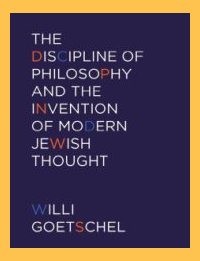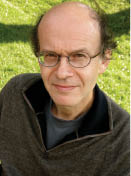NEWSLETTER 2012/13 |
|
|
A Fresh Look at the German Jewish Experience Willi Goetschel, Professor of German and Philosophy German Jewish cultural production has become one of the most exciting areas in German Studies, as we better understand the critical contributions of German Jews to German culture.
If context is everything, recontextualization—or what sociologist Niklas Luhmann refers to as changing the observer’s position—can offer a better view of the “inside.” German literature and philosophy have long been mistaken for a national affair within a closed habitat. But German Studies is slowly opening itself to different perspectives within a tradition whose most creative voices have always claimed otherwise. Turning a blind eye to hyphenated cultural identities in the new Germany or to the deep structures of long-time institutional developments is tantamount to ignoring what is often most “German” in German literature, philosophy, and culture. Attending to the Jewish aspects is less an exotic pastime than a necessity. We can only understand the urgency of the issues facing Germany amidst the Euro crisis if we attend to the wider historical context of that construction site we call German identity. Studying Mendelssohn, Lessing, and Kant may seem a far cry from the burning conflicts in Europe today, but I find it eye-opening how the past read through the present helps sharpen our vision. Only a re-examination of what has remained “unread” and asks to be read anew can make us attuned to the deep structures of the problems we face today. The research for my new book The Discipline of Philosophy and the Invention of Modern Jewish Thought (Fordham University Press, 2012) made me understand different narratives on the history of literature and philosophy as conflicts of identity politics. I examined how the identity politics driving national and disciplinary agendas assimilate figures and texts to fit their own desire. As long as these sedimented views exert their hermeneutic force, historical and literary scholarship will remain trapped in a circular loop of interpretations that follow the academic dictates of an antiquated status quo. Willi Goetschel spent Spring 2012 as Fellow in Residence at the Lichtenberg-Kolleg at the University of Göttingen. He is also the cofounder and general editor of Bamidbar: Journal for Jewish Thought and Philosophy. His next project “Difference and Alterity in Modern Jewish Philosophy” has recently been awarded a five-year Insight Grant SSHRC.
In this context, the invention of the story of modern Jewish thought has emerged from national forms of constructing philosophy and literature as German, i.e. “universal,” while reducing to the “particular” the views of Mendelssohn, Heinrich Heine, Martin Buber, Franz Rosenzweig, Margarete Susman and Hermann Levin Goldschmidt, who resisted assimilation to nationally-inclined perspectives. Reducing their philosophic insights to an exercise in “Jewish” thought rather than philosophy “proper,” however, deprives critical philosophy of its most critical insights. What is philosophy and what is literature, what is German and what Jewish? The answers, these interlocutors remind us, cannot be easily provided. At best, these questions point towards the reciprocal relationship any form of identity requires for its constitution. For identity is ultimately always predicated on the difference it makes. Read this way, old traditions are never lost. They are an empowering force field that allows us to recover what has been ignored. Sometimes the old can become the new. 
Exploring the subject of Jewish philosophy as a controversial construction site of the project
of modernity, this book examines the implications of the different and often conflicting notions that drive the debate on the question of what Jewish philosophy is or could be. The idea of Jewish philosophy begs the question of philosophy as such. But “Jewish philosophy”
does not just reflect what “philosophy” lacks. Rather, it challenges the project of philosophy itself. Examining the thought of Spinoza, Moses Mendelssohn, Heinrich Heine, Hermann Cohen Franz Rosenzweig, Martin Buber, Margarete Susman, Hermann Levin
Goldschmidt, and others, the book highlights how the most philosophic moments of their works are those in which specific concerns of their “Jewish questions” inform the rethinking of philosophy’s disciplinarity in principal terms. The long overdue recognition of the
modernity that informs the critical trajectories of Jewish philosophers from Spinoza and Mendelssohn to the present emancipates not just “Jewish philosophy” from an infelicitous pigeonhole these philosophers so pointedly sought to reject but, more important, emancipates
philosophy from its false claims to universalism.
|
|

